MAGAZINES
Origin Of The Society
The genesis of the society can be traced to the Chicago Council on Foreign Relations (now renamed as Chicago Council on Global Issues) which was also addressed by Former President of Pakistan, General (Rtd) Pervaiz Musharaf, in year 2003 and its formation inspired Mr. Ahsan Mukhtar Zubairi, who was the founder Secretary General and CEO of KCER, after 15Years it was decided to make Pakistan Council on Foreign Relations on the same lines. He found many intellectuals in the city agreeing with him. They all felt that there was a need for such a society which would not only be beneficial for Pakistan but for any Foreign Countries. For one thing there was a need for such a forum and as such 25 persons are now known as the founding members of PCFR and gathered and after long deliberations PCER was formed, which is now officially registered with Joint Stock Companies, Sindh.
About Us
The Pakistan council on foreqm relations economic atTain, law and Cultural Waifs (PCFR) is a nonpmfit international affairs organaration in Pal&SIM and will sate the community in Pakistan and of Karachi In Particular through diversified programming. The Pakistan council on foreign Ma( in will provide members specialised group and the general public with a forum tin the configuration of significant international issues and hexing on Pakistan’s foreign policy. The basic idea of PCFR is to provide information insight and interactive !cutting about man!’ ehalltrenct that lie ahead. \\c will air different Mom of view including wherever pond* those of non-Pakistanis. We will endeavor to reach wider audience through collab-oration with other institutions and by presenting our program in different provinces We will look behind the headlines 10 idemify the tool causes, longterm implications. and possible responses to ments as they unfold. We will engage Paktum Council on Forvixn Relations eanomie affairs and Law (MIA) in debate that reaches across the nation and beyond. It is our hope that the council will provide a forum at which all developments bearing on Pakistan and on its principle trading pelmets can be studied and analyzed. It will be a forum at which Pakistam and Foreign scholars can present the result of their research and studtt It mll he a forum where Karachi’s businessmen can seek to indicate to visiting statesman and to forebas visitors what in their view would be the rxilacim that would best advance the economic interests of Karachi and by extension of Pakistan. The council goal is to (unix” MOM awareness and Louden undemanding of intemaiional relations and foragm policies as well as promote Karachi’s sums as an imrnnunt interna• tional center. In addition to remaining the premier platform in South East Asia for interna. dorsal leaders in foreign policy’. The council gdsm to take the k-ad in gaining recognition for Karachi as an international business center for the corporate community and 10 broaden and deepen the Council% ode in the communint The program offered by the PCFR. will reflect the griming interest of our manlam in world economic issues. environment and the effect on interrutional matters on domestic Mall and political issues. The council will invite speakers of Foreign Commies such as America. Ituropem Union, ASl-AN, African, Central Asian and Arab world etc. enabling council nlernhcr5 to have the opporhahh to hear about economic in…gems being nude around the world and roomingcommand ncs. It will hold lectures seminars. conferences and publications. The PCFR seeks to represent all sides of complex issues on the Global agenda. The council events will feature major policy makers and other foreign experts from around the world, offering participants the opportunity 10 ask questions. voice their opinion and engage in candid Omission. Whether as a general member interested in keeping up to date on conent merits and in meeting the leaders who shape world histort a xnung professional eager to meet people with similar interest…a business mecutive looking for new makers, challenges and opportu. nines, or an educators keeping abreast of what future generations must learn and know, member: can rely on PCFR 10 C01101)11C its dedication to their concerns
HE Dr. Arif Alvi
President of The Islamic Republic Of Pakistan
I am happy to learn that “The New Vision” is launching its first edition. I would like to extend my congratulations to the Chairman, Ambassador ® Shahid Amin, Secretary General Mr. Ahsan Mukhtar Zubairi and the founder members of the formations of Pakistan Council on Foreign Relations (PCFR).
I am pleased to observe that Pakistan Council on Foreign Relations is organizing discussions and exchange of views, that provides an opportunity to diplomatic and consular representative stations in Pakistan for interactive sessions and enhances mutual understanding on international affairs. It will also help shape views of participants and develop new concepts. Pluralistic democratic societies pride themselves in holding reflective debates on matters that foster better links between countries and their peoples. The signing of Pakistan Council on Foreign Relations’ MoU with foreign think tanks especially with China, Iran, Turkey, Russia, USA, Egypt, Ukraine and other neighboring countries will further play an important role, especially in the fields of Economics, Culture, Education, Communication and Media. We must portray the soft image of Pakistan
I wish Pakistan Council on Foreign Relations will firmly establish this direction and wish them success.
H.E. Imran Ismail
Governor Of Sindh
It is heartening to know that Pakistan Council on Foreign Relations (PCFR) IS PUBLISHING FIRST EDITION OF “The New Vision”. I am confident that it would be immense interest and information for its readers.
The role of resourceful think tanks is very important in evolving the societies and help them to become more democratic, enlightened and tolerant. I believe that the PCFR is all set to become an eminent such forum for able minds to exchange their views on important national and international subjects. Its endeavours and worth admiration for engaging distinguished diplomats, veteran politicians, retired bureaucrats and active representative of civil society for incubating broader ideas and understanding of important internal and international affairs. I am optimistic that PCFR would host quality sessions where in we can hear from distinguished speakers from country and abroad soon.
It is a very positive indication that a number of great names from every walk of life have assured their support to PCFR, their presence shall help meet the objectives of the council. The concern and emphasis of the council for highlighting the issues of Karachi City is truly laudable.
I assure my all support to the members and office bearers of the PCFR and wish them accomplishment of their all set goals in days to come.
H.E. Syed Murad Ali Shah
Chief Minister Sindh
I am pleased to learn about the launch of a magazine “The New Vision’ by Pakistan Council of Foreign Relations. In past, foreign policy primarily concerned itself with strategy solely related to national interest such as military power or treaties.
However, in recent times foreign policy encompasses a thriving democracy, international trade, finance, human rights and evolution of social and cultural dynamics. Foreign policy, if rightly implemented facilitate countries to interact with one another in a harmonious environment.
Pakistan forging policy is also shifting from geopolitics to geoeconomics by strengthening ties through trade and investment, creating new markets and trade partners. The CPEC will play a major role in Pakistan’s deepening engagement in South and Central Asia as a regional hub of commerce. The recent accords with Afghanistan and the United States focusing on Afghanistan’s stability and connectivity after the US troops withdrawal will showcase Pakistan as a strong influential nation. Pakistan, given its strategically important location and the fact that it is surrounded by a tough neighborhood, the challenges for Islamabad are critical and complex.
It is imperative to have discussions and engagements with policy experts to overcome challenges, resolve issues and debate on matters which fosters relations with Pakistan’s allies. PCFR being based in Pakistan’s economic hub Karachi will portray a soft and positive image of Sindh and Pakistan as a developing regional hub.
I, congratulate PCFR’s Chairman, Ambassador Shahid Amin and Secretary General Mr. Ahsan Zubairi on the formation of Pakistan Council of Foreign Relations and wish them immense success.
Mr. Khurshid Mahmud Kasuri
Former Foreign Minister Of Pakistan
I wish the best of luck to Ambassador (R) Shahid M.Amin and Mr.Ahsan Mukhtar Zubairi, Chairman and secretary respectively of the Pakistan Council on Foreign Relations’ on their initiative in bringing our the “The New Vision”. Pakistan faces many foreign policy challenger and I hope the new magazine will help enlighten its readers regarding those, as well as, Pakistan’s best responses.
The purpose of a foreign policy is not to provide an outlet for sentiments of hope or indignation, but to shape real events in a real world. I am sure that “The New Vision” will help discerning Pakistanis in understanding the nuances of foreign policy and truly help promote Pakistan’s national interest and not let public be guided by mere rhetoric of those with a vested interest. It should also educate the people in understanding that the strengths or weaknesses of foreign policy of any country is directly related to its domestic political and economic situation.
In the words of a leading analyst, Pakistan qualifies as a major geopolitical pivot or balancing power. According to American diplomat, political scientist and National Security Advisor to President Kimmy Carter, Zbigniew Brzezinski: “Geopolitical pivots are determined by their geography which in some cases gives them a special role either in defining access to important areas or in denying resources to a significant player. I would wish “The New Vision” to educate its readers on why Pakistan despite its advantages to its maximum.
While investigating the reasons for the above, I would also like to state the Pakistan has faced many successes in foreign policy. It is correctly stated that foreign policy is the first line of defense. This is more so for a country like Pakistan which has faced perpetual difficulties with a neighbor many times its size, over the issue of Jammu and Kashmir. Despite many unwarranted criticisms levelled by interested groups, it is not often realized, Pakistan has achieved major successes in foreign policy. No better compliment can be paid if it comes from and adversary, External Affairs Minister of India, K. Narwar Singh who himself is a diplomat describes Pakistani diplomats as a formidable group. Given India’ size and diplomatic clout, he expresses surprise at how Pakistan has been able to keep the Kashmir issue alive on the international agenda over the decades and have also managed to maintain good relations with US and China at a time when the Americans were dead opposed to Mao’s China from 1962 to 1971:
As the only Muslim nuclear power in the world, with a strong, battle-hardened and professional Army, we have with the grace of the almighty Allah been able to secure our independence and vital national interests. But at the same time, we need to ask whether we could have leveraged our strengths more effectively, at least, in the Muslim world.
Pakistan is lucy to have a neighbor and a steadfast ally like China, and I hope that The New Vision will encourage a debate on how to maximize the benefits of CPEC. Similarly, momentous developments are taking place in Afghanistan as I write. We have long underestimated the importance of ‘soft power’ which in the words of the Harvard Professor Joseph Nye means coopting people rather than coercing them’. Any country effectively using ‘soft power’ can reap huge advantages; I expect that the new publication will enlighten its readers in this respect as well it seems that the new magazine has its job cut out for it. I wish it the best of luck.
Ambassador Shahid M.Amin
Chairman, PCFR
The setting up of the PakistanCouncil on foreign Relations,Economic,Law and Cultural Affairs (PCFR),Karachi, is an important step to promote understanding of foreign policy, economic and cultural issues amongst Pakistanis,particularly those residing in Karachi, view to promote friendship and understanding between nations.I laud this commendable initiative by Mr.Ahsan Mukhtar Zubairi,who had earlier pioeered the setting up of the first such think tank in Karachi.
Karachi is justifiably called ‘Mini-Pakistan’ with a population of over twenty million ,consisting of practically all ethnic groups in the population of Pakistan.It is Pakistan’s main port,the financial hub and the industrial centre of the country.It has the Largest number of educational institutions and hosts the main news media and TV channels.Karachi is one of the world’s great metropolis and has all the facilities of modern city.It is only befitting that it should have many thinks tanks,taking benefit from the wisdom and experience of a great many Karachiites who have excelled in so many professions. PCFR is expected to fulfil the role.
Pakistan is the 5th most populous country in the world and the second largest in the Muslim world, consisting of over states.It is the only Muslim country with nuclear-weapons and enjoys a key geostrategic location.It has emerged as an important player in regional and global politics .However, Pakistan continues to face serious challenges in security,economy,development and governance.Pakistan’s security continues to be threatened by its larger neighbour India, whose unending hostility and, particularly, its repression of the Kashmiri people, are the reasons for the grave tension between the two nuclear-armed countries.In addition, the warfare in neighbouring Afghanistan and the issue of terrorism pose grave challenges to Pakistan’s security.Foreign Policy has always played a central role in the promotion of the Pakistan’s vital national interests and has been described as the first line of its defence. This state of affairs is likely to continue in the foreseeable future .It is ,therefore,important that the best minds in Pakistan should be employed in thinks thinks tanks, working out possible strategies and foreign policy options for the advancement of the country’s best interests.This responsibility should not be left to be borne only by the governing class and a handful of bureaucrats. The same applies to the management of the economy and trade, where Pakistan’s performance could and should have been far better.Proactive and creative thinking is needed if the country is to reach its true potential.It is hoped that PCFR,along with similar bodies, will make a significiant contribution in this respect.
In addition, the PCFR is providing a useful platform to foreign Ambassodors, scholars and eminent individuals, who visit Karachi, to meet a cross-section of our society for inner-active exchanges of views.Such meetings are manually useful in that the foreign dignitaries have a chance to make an assessment of the views on important issues of eminent Pakistanis, residing in the largest city in Pakistan, while also providing a forum to the foreign visitors to explain the policies of their respective governments.
H.E Mr. Rodolfo Jose Martin- Saravia
Former Dean OF Diplomatic Corps & Former Ambassador Of The Argentine Republic
I want to congratulate the Pakistan Council on Foreign Relations (PCFR) on the 1st Anniversary of its foundation. I really appreciate the role of PCFR in strengthening relations of Pakistan with foreign countries and regions, and in particular for PCFR’s continued support in promoting of relations with Argentine.
Think tanks and institution like PCFR can shape political transformations in the region by informing covering and advocating democratic reforms. The council has become the most prestigious and vibrant forum in Karachi, for discussion and exchange of views for the Diplomatic Corps, by arranging interaction sessions with Ambassadors and High Commissioners based in Islamabad, representing the whole world in promoting regional cooperation.
In my capacity as the Former Dean of Diplomatic Corps & Former Ambassador of the Argentine Republic, I wish you good luck and avail myself of the opportunity to renew to Mr. Ahsan Mukhtar Zubairi, Secretary General and CEO and the members of the Council, the assurance of my highest considerations.
Mr. Ahsan Mukhtar Zubairi
Secretary General & Chief Executive Officer
Time travels on and it is now 1 year since the first seed of Pakistan Council on Foreign Relations was sown on September, 2020 from its humble beginning by handful of dedicated Founder Members, it is now a vibrant and thriving think tank with enthusiastic members who continue to contribute to its progress and success. Thus fulfilling my dreams as a Founder of this council who believed one step forward of PCFR would grow into many steps that would spread our message to all over the world through our moto “NAVIGATING THE WAY TO INTERNATIONAL UNDERSTANDING”
The Pakistan Council is also committed to research oriented consolidation of relations between Pakistan and international community in its humble capacity, the council has started research wings that would improve the image of Pakistan and address the concerns of the international community in relations to Pakistan especially in the post 9/11 era where there is a lot of ambiguity and opaqueness abour the role of Pakistan in the war against terror in spite all of its sacrifices. Also the fact that probably Pakistan is one of the most important countries in the region when moving towards peace and tangible solution in Afghanistan.
I am extremely thankful to H.E. Mr. Acadian Movlamov Ambassador Extraordinary and Plenipotentiary Embassy of Turkmenistan and Dean of Diplomatic Corps ambassador of Turkmenistan and Dean of the Diplomatic Corps, ambassadors of H.E. Aybek Arif Usmanov, Ambassador, Uzbekistan HE Ulan hek Toruiacy, Ambassador, Kyrgyz Republic, H. Ismatullo Nasredin, Ambassador, Tajikistan, FLE Mr. Khazar Nadir oglu Farhadov, Ambassador Extraordinary and Plenipotentiary, Republic of Azerbaijan, HE Mr. Yerzhan Kistafin, Ambassador, Republic of Kazakhstan, HE Markian Chuchuk, Ambassador, Ukraine, H.E IOSEB CHAKHVASHVILI, Ambassador Extraordinary & Plenipotentiary of Georgia, To the Islamic Republic of Iran & Islamic Republic of Pakistan, H.E. Mr. Andrei Metelitsa, Ambassador, Belarus, Federal Republic of Germany, Ambassador of France and the Dean of the European Union, H.E Seyed Mohammad Ali Hosseini, Ambassador, Islamic Republic of Iran, HF Ihsan Mustafa Yurda kul, Ambassador, Turkey, HE Mr. Nong Rong, Ambassador Extraordinary and Plenipotentiary, People’s Republic of China, HF. Eric Owusu-Boateng, Ambassador, Republic of Ghana, Iraqi ambassador in Pakistan HF Hamid Abbas Lafta for their outstanding cooperation and support in arranging our meetings and addressing our Council.
My very special thanks to Mr. Khurshid Mehmood Kasur, Former Foreign Minister and our Co-Chief Patron, Mr. Bashir Jan Muhammed, Mr. Talib Karim, Mr. Zubair Tufail and Mr Tariq Rafi, Mr. Khalid Awan, Chairman and Mr. Qasim Awan, Director TCS Logistics Pvt Ltd and Mr. Hunaid Lakhani, Chancelor Iqra University, Mr. Sultan Chawala for their continued Patronage and cooperation. The PCFR would like to focus on research which may be factored in policy making both inside and outside Pakistan, in the following:
Regional integration of South Asia: With special focus on Pakistan-India Relations.
Pakistan’s relations with ASEAN and Central Asian States: The efforts to raise the level of cooperation between ASEAN, Central Asian States and Pakistan have gained new impetus towards identifying the tremendous potential and opportunities of joint collaboration. ASEAN and Central Asian States highly value Pakistan’s cooperation and interest in promoting friendly relations with ASEAN and Central Asian States with its “Look East Policy”.
Pakistan relations with the European Union: The EU sees Pakistan as a key ally in issues such as counter terrorism and the war in Afghanistan but this vision has not yet been translated into concrete policy The relationship has a lot of untapped potential including the areas of development assistance, counter terrorism and trade.
I am extremely grateful to Chairman, Ambassador (Rid) Shahid M. Amin and Co-Chairman, Ambassador (Rid) Alam Brohi and members of the Board of Governors, members of PCFR and Office Staff of PCFR for their cooperation in running the affairs of the Council.
The Founder, Co-Chief Patrons, Chairman and Co-Chairman
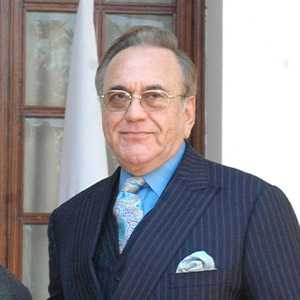
Mr. Khurshid Mahmud Kasuri
Former Foreign Minister of Pakistan, Founder & Co-Chief Patron

Mr. Ahsan Mukhtar Zubairi
Founder & Secretary General / CEO

Mr. Hunaid Lakhani
Chancellor Iqra University & Co-Chief Patron PCFR
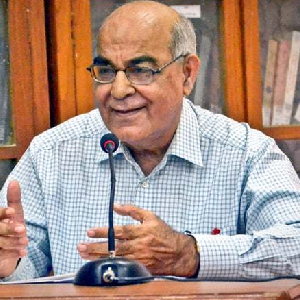
Amb ® Shahid M. Amin
Founder & Chairman
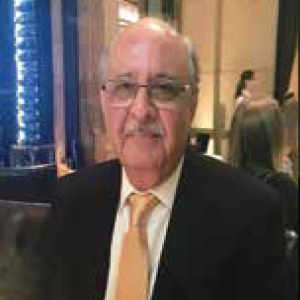
Mr. Naeem Ahmed
Founder & Co-Chief Patron
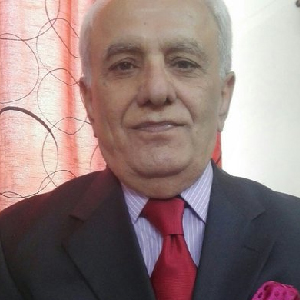
Amb ® Alam Brohi
Founder & Co-Chief Patron
Patrons
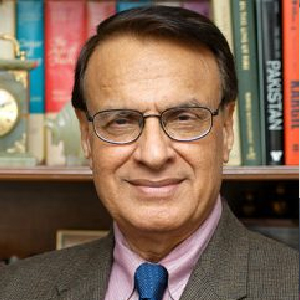
Mr. Shamshad Ahmad
Former Foreign Secretary of Pakistan
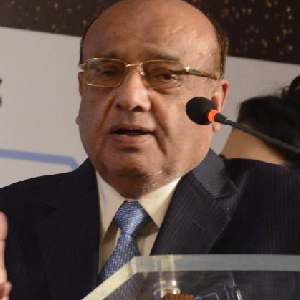
Mr. Bashir Jan Muhammad
Chancellor Institute of Business Management
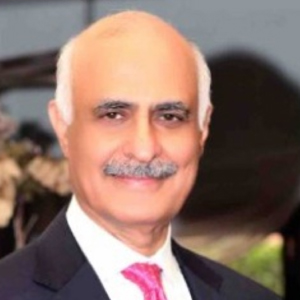
Mr. Khalid Awan
Chairman TCS Holdings Pvt Ltd
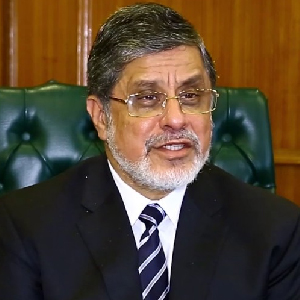
Mr. Zubair Tufail
Former President, FPPCI President United Business Group, UBG
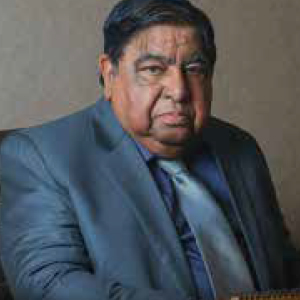
Mr. Mian Jehangir Shahid
Chairman and Founder Leopard Courier

Mr. Talib Karim
President Institute of Business Management
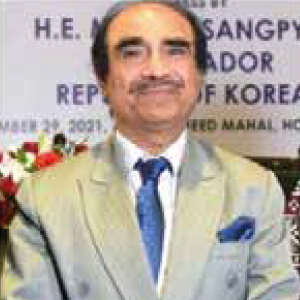
Amb ® G.R. Baloch
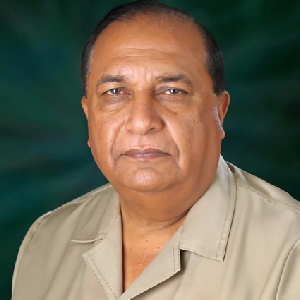
Mr. S.M. Muneer
Leader of Business Community of Pakistan
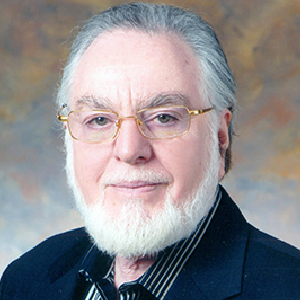
Abdul Haseeb Khan
Chairman Brooks Pharma
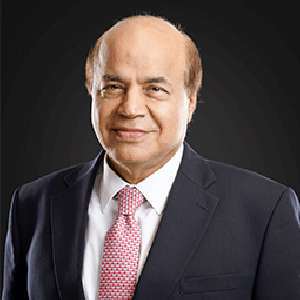
Mr. Muhammad Tariq Rafi
Chairman Siddiqsons Group
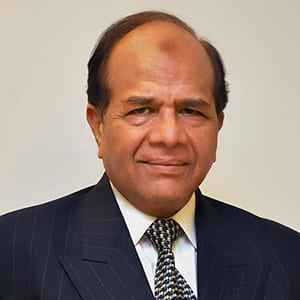
Sultan Ahmed Chawla
Chief Executive Burque Corporation

Mr. Qasim Awan
Director TCS Holdings Pvt Ltd
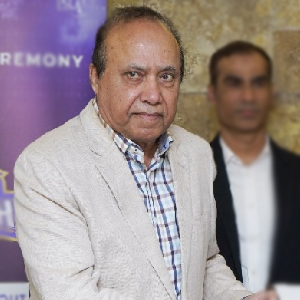
Mr. Khalil Ahmed Nanitalwala
Chairman Medicam Group of Companies
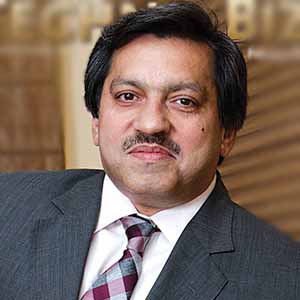
Yousuf Dewan Farooqui
Chairman Yousuf Dewan & Companies
ARTICLES
Ambassador Shahid M.Amin
Presently, there is a great deal of criticism of Pakistan in the US Congress, official circles and the media on the basis of the allegation that Pakistan had supported the Taliban clandestinely, while ostensibly supporting the US/NATO in the War on Terror, launched in 2001. Pakistan is, in effect, accused of playing a double game viz. While being a US ally, it has been supporting the Taliban in multiple ways, like giving them sanctuaries, training them and offering them intelligence support, etc. Some circles are claiming that since 2004, the Taliban fought against and eventually won the war against the US/NATO forces, mainly due to the role played by Pakistan. Warnings are being issued by US government circles that they are reappraising bilateral relations with Pakistan, and there have been implicit threats of imposing of sanctions against Pakistan. In what looks like a sign of displeasure, President Biden has so far not spoken on phone with Prime Minister Imran Khan, unlike the past history of US Presidents getting in touch with the Pakistan President/Prime Minister immediately after taking office.
It is unfortunate that many circles in the US have shown a reckless disregard of the truth about the real reasons for the US/NATO military and political failure in Afghanistan. Even worse, there has been a serious misreading of history about the course of US-Pakistan relations in the last seventy years. No doubt, the US is currently in a state of shock and frustration over its failure in Afghanistan, but making judgements on the basis of unsubstantiated allegations and outright misconceptions will not serve any purpose. There is need for a careful and dispassionate analysis of the recent events in Afghanistan and the history ofUS-Pakistan relations.
Historical Review:
No doubt, inter-state relations are based on a mutuality of national interests. This applies also to the 70-years long relationship that has existed between USA and Pakistan. Unfortunately, a perception has grown in the US that, over the years, it has given substantial financial and military aid to Pakistan, but has got nothing/little in return from Pakistan which, it is further alleged, has at times worked to harm US interests. This impression is not supported by the historical evidence. In the 1950s, the two countries first got close together because the US was looking for allies on the periphery of the Communist bloc, in pursuit of its policy of “containment” of the Soviet Union. Pakistan decided to become a US ally and joined two US sponsored security pacts CENTO and SEATO and was the most allied partner of USA, and supported it on most issues, during the period 1954-1965 Pakistan’s motive was to secure military, economic and diplomatic support from the USA in order to counter the grave security threat from its regional rival, India, which was several times bigger in size and resources. Pakistan did receive substantial US economic and military aid but, when the 1st India-Pakistan War broke out in 1965, the US cut off its military aid and diplomatic support of Pakistan. The perception in Pakistan was that it had been let down by its US ally. Many also noted that Pakistan had paid a heavy price for its alliance with the US, because the other Super Power, the Soviet Union, had thrown its full weight behind India since 1954 and used its veto in the UN Security Council to frustrate implementation of its Resolutions on Kashmir, a vital issue for Pakistan. The alliance with the US was also not popular because the Pakistani public opinion saw the US as the principal supporter of Israel, the occupier of Jerusalem, a very sensitive Islamic issue. Many Pakistanis also favored non-alignment in foreign policy.
During the 1960s, the US kept showing displeasure with Pakistan for seeking good relations with China. It did not realize that Pakistan’s strategic reason was that it already had bad relations with India, a large neighbor, and could not afford to have unfriendly relations also with China, another large neighbor. Ironically, in 1971, Pakistan played a key role in the normalization of US relations with China. This was a huge strategic gain for the US in global politics and strengthened its hands vis-à-vis the Soviet Union, its principal enemy in the Cold War. President Nixon profusely thanked Pakistan for its role in US-China reconciliation.
In the 1980s, Pakistan joined the US and NATO and became the principal conduit for military and other support of the Afghan Mujahidin who were fighting the Soviet Union. Pakistan was deeply concerned that the Soviet Red Army had reached the Khyber Pass and Pakistan could be the next Soviet target. On the other hand, the US considered the Soviet military occupation of Afghanistan as a strategic gain for Moscow in the Cold War: it was now in a striking distance to reach the warm waters, which was an old Russian dream. Thus, a mutuality of interests brought Pakistan and the US together and close cooperation took place.
The Afghan Mujahidin eventually succeeded in the long and bitter war that resulted in death of thousands of Afghans. The Soviets were forced to withdraw from Afghanistan in 1989. It was a major Soviet defeat in the Cold War and probably contributed to the collapse of the Soviet Union itself in 1991. Without Pakistan’s key support, the Soviets would have prevailed in Afghanistan and would have made it a satellite country, if not annexed it outright as the 16th Soviet republic. This was a huge geostrategic gain for the US and the West. Pakistan had helped in a big way to make it possible.
During the Afghan Jihad, Pakistan did receive billions of dollars in US military and economic aid. But, in the process, Pakistan also took formidable risks and was constantly facing threats of grave consequences from the Soviet Union, a Super Power next door. Moscow sought to harm Pakistan by drawing even closer to India and also encouraged subversion in Pakistan by the Communist regime in Kabul. Indeed, Pakistan paid a heavy price for supporting the Afghan Jihad due to the proliferation of arms in the country, the spread of narcotics, and the rise of Islamist extremists and terrorists, who have ever since sought to destabilize Pakistan.
What did the US do after the Soviet defeat in Afghanistan? It simply washed off its hands from Afghanistan and left Pakistan to face the after math. The same Afghan Mujahidin, who were trained and armed by the US during the Jihad, and were feted in the White House by President Reagan, became a security threat to the US/West. Usama bin Laden and Afghan Arabs’ were part of the Afghan Jihad and were seen as US allies. They later emerged as a formidable security threat for the USA, as proved by 9/11. The Afghan Jihad had radicalized and militarized these extremists. But, apart from USA, Pakistan would also suffer at the hands of these terrorists.
After 9/11, the US was determined to invade Afghanistan. Pakistan was seen as the only viable access route for the US invasion. President Bush more or less forced Pakistan to become a partner in the War on Terror by threatening: “Either you are with us or against us.” It needs to be noted that no Pakistani was involved in 9/11. The Taliban regime in Kabul had done nothing against Pakistan. Left on its own, Pakistan would have remained out of the war. But it was left with no alternative but to allow US/NATO forces to operate via Pakistani territory for 20 years. The perception grew in Pakistan that it had been forced to join a war that was not its own war.
Pakistan also played an active part in the War on Terror by launching military operations against the Islamist terrorists in its tribal areas. But Pakistan’s support for the US led to severe retaliation from the pro-Taliban supporters, namely, the TTP (Tehreek Taliban Pakistan) and Al-Qaeda who unleashed a reign of terror in Pakistan. Over 70,000 Pakistanis lost their lives and financial losses are estimated to be over $150 billion. The US gave economic and military aid to Pakistan (around $20 billion) and also reimbursed it under the Coalition Support Fund to compensate Pakistan’s expenditure in military operations against the terrorists.
It is noteworthy, on comparison, that when the US wanted to use a transit route through Turkey, for its invasion of Iraq in 2003, it had offered $40 billion to Turkey. The aid to Pakistan for the use of its territory for 20 years was far less. It is astonishing that an impression has grown in the US that it has squandered away big money in Pakistan since 9/11 and received nothing in return. The opposite has been the case. Pakistan allowed the strategic transit route through its territory, without which the US could not have fought in Afghanistan. Moreover, Pakistan paid a very heavy price for its support of the US since 9/11 in terms of lives lost and financial losses due to activities of TTP and other terrorists
Pakistan's alleged support for the Taliban
Any realistic analysis would show that the Taliban fought and won the war in Afghanistan due to their own popularity and strategy. Firstly, being mainly Pakhtun themselves, they were able to generate support from the large Pakhtun population in Afghanistan. Secondly, their Islamic ideology, how ever harsh it might seem to the rest of the world, has appeal in the traditional Afghan village culture. Thirdly, the Taliban were seen by many Afghans as fighting for liberation from foreign occupation. The West-sponsored Kabul regime, set up in 2002, was seen as a foreign puppet, which was also regarded as corrupt and inefficient. Fourthly, Afghanistan is very suitable for guerilla warfare, as was previously found by the British in the 19th century and the Soviets in the 20th century. The question is why did the Kabul regime armed forces collapse so suddenly? For about 20 years, they had been trained and armed by the US/NATO. But in the end, most of them refused to fight and surrendered, sometimes without a shot being fired. There could be several reasons for this collapse. Firstly, the Kabul regime forces had pro-Taliban elements, as shown by their frequent desertions over the years. Secondly, the Kabul forces were psychologically much too dependent on US/NATO military support and believed that the US would retain a military presence in Afghanistan. When they realized belatedly that the US was making a total withdrawal, they lost heart. Thirdly, almost 40 years of constant warfare had produced war-weariness. The growing rise of the Taliban since 2004 would achieve a snowballing effect in the final stages, when the impression grew that the Taliban were on a winning course and shedding of more blood would not stop them. Finally, the US made a strategic mistake by issuing a definitive deadline for military withdrawal. This definitely emboldened, the Taliban and demoralized the Kabul regime forces. The conclusion has to be that the Taliban won the war due to a combination of internal reasons and defective US policies. In any event, let us take the accusation that it was Pakistan’s support for the Taliban that led to their victory. No concrete proof has ever been produced of the allegation that there were safe sanctuaries for Taliban in Pakistan. The US has all the technology and intelligence resources and could have identified any specific sanctuary in Pakistan, had there been one. As for allegations of Pakistani military help to Taliban in the fighting inside Afghanistan, no Pakistani soldier was ever captured, dead or alive, in Afghanistan. This applies equally to the more recent capture of Panjshir valley by the Taliban with the alleged, but totally unproven, military support by Pakistan. Mere allegations without concrete proof take us nowhere.
There is another accusation that since some Taliban leaders and their families have been living in Pakistan, this “proves’ that Pakistan has been a supporter of the Taliban. But non-Taliban Afghan leaders have also lived in Pakistan, like ex-President Karzai and ex President Rabbani. The obvious reason is that Afghanistan has long been in a state of war, whereas Pakistan is a relatively safe country. Plus, it has all the conveniences of life, including good medical treatment and education facilities for children. Hence, many Afghans, Pakhtun and Ron-Pakhtun, have bought properties in Pakistan. Moreover, Pakistan has always had a kind of open border with Afghanistan because the same tribes live on both sides of the border. This makes it very difficult to control movement across the border. There are other concrete reasons that rule out any active military role by Pakistan in support of the Taliban. Firstly, Pakistan has its hands full in trying to prevent aggression by India, a foe which is several times bigger than Pakistan in size and resources. Secondly, Pakistan’s economy is in a poor shape and Pakistan simply does not have physical resources to get involved in a protracted military adventure in its neighborhood. Finally, the lesson of history shows that it has never been possible for Pakistan to bring about a change of regime in Afghanistan. If it could, why did it not manage to change many unfriendly regimes in Kabul who have been at odds with Pakistan right from its independence in 1947?
The critics of Pakistan also point to the killing in 2011 of Usama bin Laden in Abbottabad, and ask how he could be hiding close to Pakistan’s premier military training academy. They argue that this was, surely, due to connivance by some Pakistani military circles. But the objective reality is that UBL had declared a Jihad against the Musharraf regime in Pakistan due to its support for the US war in Afghanistan. His group Al-Qaeda was involved in serious acts of terrorism in Pakistan. Why should Pakistan provide a safe sanctuary to UBL? It makes no sense. However, Pakistan can be blamed for a serious failure of intelligence. But this has happened in the case of other countries as well. The US was unaware of the 9/11 plot till the end. In 1941, the US had no clue that Japan was about to bomb Pearl Harbor. In 2003, the US/British intelligence mistakenly claimed that Saddan Hussin was in possession of WMDs, leading to the US invasion of Iraq. This intelligence turned out to be untrue and the US has been condemned by many for forwarding a false justification for invading Iraq in 2003.
Conclusion
The US is understandably frustrated by its military defeat in Afghanistan. But it is no use making Pakistan a scapegoat for this defeat. This would be no more than a case of self-deception. It is in the US interest to make an objective assessment of the reasons for failure in Afghanistan so as to draw the right conclusions that will help avoid any such mistakes in the future.
The US needs to realize that Pakistan has been an important ally for decades. While the US has given it substantial military and economic aid, but, over the years, Pakistan has also played a strategically important role that has helped US global interests. In other words, the US-Pakistan alliance since 1954 has not been a one-way traffic. Pakistan did get US aid but it also helped USA on critical global issues. Moreover, by becoming a US ally, it has also suffered in many ways and paid a heavy price for its friendship with USA. The bottom line is that, despite some periodic disappointments, the US-Pakistan relationship has been mutually advantageous.
Neither the US nor any other country can overlook that Pakistan is a nuclear power and has a key geostrategic location. It will continue to be a factor in global politics in the present and the future, notably in the context of developments in Afghanistan. Befriending Pakistan remains very much in the US interest. It is also in the national interest of Pakistan to maintain a friendly relationship with the US, which is the sole Super Power and wields great influence.
Ambassador Abdul basit
President ,PICSS,Islamabad
It is said that “diplomacy is the art of the possible”. Diplomacy is also defined as “the art of accepting the feasible in order to advance the desirable”. In the context of Pakistan-India relations, this exciting and intricate art seems to have yielded far less than the general public expectations on both sides of the border. The international community also appears to have been losing interest in the seemingly intractable bilateral disputes. This a bad augury. Mutual hostility in a nuclear environment cannot be left to either indefinite disengage or risk prone improvidence.
Cycle of Stalemates
It was a great privilege for me to have served in New Delhi as Pakistan High Commissioner for over three years, that is, from March 2014 to August 2017. I was genuinely enthusiastic to contribute meaningfully. The first and foremost challenge was how to put the bilateral engagement process itself on an irreversible trajectory. The cycle of moving from a stalemate to a stalemate had to come to an end.
The first meeting between Prime Minister Nawaz Sharif and Prime Minister Narendra Modi in New Delhi on 27 May 2014 was full of bonhomie.They agreed to resume the dialogue process. Accordingly, it was decided that the Indian Foreign Secretary, Sujatha Singh, would visit Pakistan on 25 August to talk about talks. The proposed visit, however, could not take place. The new Indian government found my meetings with the Hurriyat leadership prior to the visit as offensive and unacceptable. Foreign Secretary Singh telephoned me on 18 August to convey that Pakistan should either interact with New Delhi or the “Kashmiri separatists”. She also warned me that if I went ahead with my meetings, she would be constrained to cancel her visit to Pakistan. To me the Indian demarche, which immediately found its way to the Indian media, was unreasonable, especially when India had never in the past made this an either-or issue. However, there was no question I would resign to India’s ultimatum. The Indian media lost no time in blaming me for the cancellation of Singh’s visit. I was, however, convinced that India would itself reach out to Pakistan after the elections in Kashmir in which for the first time the BJP won 25 seats and became the junior partner in the coalition government with the People’s Democratic Party. India’s new Foreign Secretary, Subrahmanyam Jaishankar, using the SAARC yatra cover, visited Pakistan in early March 2015. The two countries were thus gradually moving towards breaking the logjam.
The two prime ministers met at Ufa, Russia (10 July 2015) on the sidelines of the Shanghai Cooperation Organization summit meeting. They agreed on two parallel streams of talks. One led by the National Security Advisors to discuss issues related to terrorism and the other one by the Foreign Secretaries to talk on issues ranging from Kashmir to peace and security. It was decided that the Pakistan’s National Security Advisor (NSA) would visit New Delhi during the second half of the next month to resume the engagement process.
That visit also could not materialize, for India refused to allow the Pakistan NSA to meet the Hurriyat leadership at a reception to be hosted by me. Thus, the two sides had again hit a deadlock. It was the Heart of Asia Conference on Afghanistan held in Islamabad in December that provided the opportunity to break the impasse. Earlier, the two prime ministers had a brief informal encounter in Paris at the climate change summit, which was followed by a meeting of the two NSAs in Bangkok on 6 December 2015. Modi also surprised everyone by making a brief stopover in Lahore on 25 December on his way from Kabul to New Delhi to greet Sharif on the wedding of his grand-daughter.
While preparations were in hand for Foreign Secretary Jaishankar’s visit to Pakistan on 15 January 2016, the attack on the Pathankot airbase in the Indian Punjab on 2 January once again put the bilateral engagement process at risk. Jaishankar’s visit was postponed with mutual consultations. India then kept on prevaricating and finally linked the visit to progress on the Pathankot investigations.
Indubitably, 2016 was a difficult year. The Pathankot attack; the arrest of Commander Kulbhushan Jadhav by Pakistan in March; months-long protests in Kashmir following the martyr of Burhan Wani on 8 July; the Uri attack on 18 September in which 19 Indian soldiers were killed; the Indian claim of carrying out surgical strikes on the Pakistan side of the Line of Control; and the postponement of the 19th SAARC summit to be held in Islamabad in November over Indian boycott, left both sides in the vortex of uncertainty.
Hopes engendered by the new government in Pakistan under Prime Minister Imran Khan also could not last long. The Pulwama attack on 14 February 2019 and then the Balakot episode witnessed another round of high tensions Even Pakistan’s overture to return the captured Indian Wing Commander, Abhinandan Varthaman. within 48 hours did not help break the ice. In fact, worse was not yet to come.
On 5 August 2019, India stripped Jammu and Kashmir of its special status through constitutional amendments. Pakistan reacted sharply, downgrading the diplomatic relations, halting the bilateral trade and closing its airspace for Indian commercial flights. While the last one has now been done away with, the two hostile countries are yet to find a way out of the present cul-de-sac. Pakistan is insisting that the status quo as existed on 4 August should be restored. For India, that is non-negotiable.
Ceasefire Agreement
Meanwhile, a backchannel was established between Pakistan’s Inter-Services Intelligence and India’s National Security Advisor. After a year or so long engagement, the two sides, to the surprise of many, reached an agreement on 25 February 2021 on observing ceasefire along the Line of Control (LOC). An informal ceasefire understanding did exist since November 2003 but was being violated routinely, killing many Kashmiris living along the LOC.
It may be mentioned that Pakistan had proposed in September 2015 to formalize the 2003 understanding but India never responded. Perhaps, India’s positive response now was prompted by the Sino-Indian clashes in the eastern Ladakh region last year in which 20 Indian soldiers were killed. It makes perfect military sense for India to avert a two-front situation. However, there was no point for Pakistan to let the two-front pressure on India go, given what India did apropos the occupied Jammu and Kashmir.
Interestingly, the joint statement signed by the Directors General (Military Operations) from both sides went beyond the ceasefire. The two DGMOs also “agreed to address each other’s core issues and concerns which have propensity to disturb peace and lead to violence”. It was never made clear who would address “each other’s core issues and concerns”, and how. Needless to say these matters were beyond the bailiwick of DGMOs.
While the ceasefire is holding barring a few minor incidents, the return of the Taliban to power in Kabul on 15 August 2021, has visibly rattled India and vitiated the bilateral atmosphere. On 12 September, Pakistan presented a well-documented dossier, detailing India’s continuing grisly human rights violations in Kashmir. The dossier also refers to five Daesh camps being run by India. It seems the backchannel that was established over two years ago has outlived its utility. We are seeing the two countries returning to high-voltage rhetoric.
Way Forward
Bilateralism, as India insists, has largely failed. Islamabad and New Delhi have not been able to show any concrete progress on either Kashmir or even less complicated issues, such as, Siachen and Sir Creek. Even the confidence-building measures (CBMs), painstakingly worked out during the last two decades, are gradually falling apart. For instance, trade and tourism across the LoC have totally stopped. There are no cricketing ties. And the visa regime, that was substantially relaxed in 2012, is back to unhelpful stringency. So much so there was no exchange of traditional greetings by the two premiers on the independence day of the two countries this year.
Pakistan-India relations appear to have reached the point where they need external help to facilitate bilateral engagement and meaningful talks. We know that some role was played by the UAE that resulted in the ceasefire agreement. India’s aversion to third party mediation notwithstanding, realistically speaking the two countries have lost so much mutual trust during the recent years that recovering the ground on their own looks discouragingly difficult if not impossible.
Much hinges on India. It is India that has added more complications to the bilateral relations by its revocation of Kashmir’s special status. This was not only in breach of its own constitution and the 1972 Shimla Agreement but also in defiance of the 4th April 2018 judgement of the Indian Supreme Court ruling that Article 370 had “acquired permanent status through years of existence, making its abrogation impossible.”
To break the current gridlock, India cannot escape taking some hard decisions. This time round, Pakistan may not be willing to have talks before India takes some concrete steps upfront on Kashmir. Some obvious are as follows:
First, India should release all the Hurriyat leaders either in jail or under house arrest. They must be allowed to travel abroad freely, including Pakistan. Similarly, all political prisoners in Kashmir should also be freed forthwith.
Second, India must lift all the black laws currently in place in Kashmir. These laws are anti-democratic as they give absolute powers to security personnel to even kill innocent people in the garb of security with impunity. Many international human rights organizations, as well as the UN Human Rights Commissioner have spoken against these draconian laws.
Third, India must allow a UN Human Rights Commissioner team to visit Kashmir as recommended in his 2018 and 2019 reports.
Fourth, India must rescind over three million domiciles that have been issued to Indians making them eligible to settle down and purchase property in Kashmir. This is nothing but to change Kashmir’s demography and turn it into a Hindu-majority state.
Fifth, the Indian Supreme Court must start hearing of the petitions against the 5 August measures. Interestingly, on 4 April 2018, the Supreme Court in its judgment on a petition against Article 370, upheld the provision ruling that
The foregoing steps would no doubt help pave the way for reengagement but reengagement should be taken as a means, not an end itself. Needless to emphasize that without settling the Kashmir dispute in a just manner, all efforts to build bridges of normal relations between the two archenemies are bound to crumble. Diplomacy despises slapdash approaches, and in mutual hostility there is barely any space for unilateral flexibility.
The question remains what would be the final contours of the Kashmir settlement. Should the two countries revert to the four-point formula as was being discussed between the two countries on the back channel from 2004 onwards? Do both countries now own those discussions and are ready to pick up from where the matters were left? Obviously, such sensitive issues cannot be discussed openly. It becomes counterproductive to publicly and prematurely move beyond stated positions on such tricky and vexed issues before final is reached at formal negotiations.
It would be foolhardy to expect quick results. However, almost fifty years have elapsed to the 1972 Shimla Agreement. Pakistan would find it very difficult to spend fifty more years in bilateral talks with no concrete results.
On the other hand, mutual concerns related to terrorism also need to be addressed effectively and conclusively. It could be expected that once the core dispute is amicably resolved it would become far easier to address the peripheral issues. In the wake of Kashmir settlement, positivity in all likeli hood will become self-sustaining
However, it must be pointed out that the growing US-China rivalry, and the Taliban’s return to power are also having serious bearings on Pakistan-India relations. Should India fully align itself with the US strategic objectives at both systemic and sub-systemic levels, prospects for bettering the situation in South Asia would further deflate? India cannot have its cake and eat it too. Suffice it to say for now that cooperation and confrontation do not and cannot coexist for very long.
Let us hope the two countries have learnt from their past mistakes, and are able to muster political courage to make a new beginning. They also have a responsibility towards posterity and the region as whole which remains the least integrated in the world.
Peace between the two will create myriad opportunities for South Asia and beyond. Are the two countries ready to tread a path that leads to peace and prosperity? Sadly, I am not hearing much to this effect in India. Ler’s remember that hubris is anathema to effective diplomacy.
If the past is any guide, avoiding to settle the Kashmir dispute upfront will keep the bilateral diplomacy in disarray and future relations rickety and unpredictable. The present stalemate must give way to an irreversible trajectory that leads to a permanent peace between the two countries.
Ambassador G. Rasool Baluch
After two-decades-long sustained and bloody struggle against foreign occupation, a swift and surprise victory by the Taliban in Afghanistan not only stunned the world but even the victor. Everyone was in deep disbelief at their achievement. In this struggle by the Taliban against foreign occupation, several of their colleagues were killed, wounded and taken as prisoners. Some of them are part of the leadership team which will govern Afghanistan. The Taliban have indeed snatched this victory from the most powerful military on the globe. Having entered Kabul on August 15 with the final departure of the last US soldier, Major General Chris Donahue, and the last diplomat, the US Charge de Affairs, Ross Wilson, one minute to midnight of August 31-a deadline set by the US President, Joe Biden-marked the formal end of 20 years of occupation of Afghanistan by the US and NATO forces. The freedom fighters turned into rulers overnight. But alas! they were totally ill-prepared for the new role as rulers. To govern a country of about 40 million, which has been at war for the past five decades from within as well as with outside forces, is no joke. The unbelievable melting of the US-backed Ashraf Ghani regime into thin air along with its over 300,000 strong security apparatus with billions of worth of state-of-the-art military arsenal-including most advanced helicopters, planes, hundreds of guns and drones- and hundreds of technocrats and senior officials, including the head of the Afghan Central Bank, has left a gaping governance gap. Filling this vacuum in the governance structure is the most urgent challenge that the Taliban rulers will have to respond to. The world is watching anxiously to see if the warriors can metamorph themselves into effective rulers and can set up a functioning government.
The Taliban announced an interim Government on Tuesday, September 7. The Taliban chief Mullah Haibatullah approved a 33-member cabinet dominated by “Afghan War Veterans,” which was to be led by Mullah Muhammad Hassan Akhund. The spokesman for the regime, Zabihullah Mujahid, while announcing the formation of the cabinet, hastened to add, “The cabinet is not complete it is just acting. We will try to take people from other parts of the country.” This assurance was most likely meant for an audience abroad. The world has made it clear to the Taliban that the international recognition of their de facto control of the country is dependent on three major conditions that the Taliban:
Filling the vacuum in the governance structure is the most urgent challenge for the Taliban rulers.
- form an inclusive and a broad-based government giving representation to all segments and denominations of the Afghan society, including religious and ethnic minorities and women;
- assure the world of respect for the human rights of women and minorities.
- to not allow their territory to be used by non-state actors, including the ISS -K, Al Qaeda, EITK, TTP.
The formation of the interim government was necessitated for creating a governance structure to prevent the war-ravaged country from sliding into anarchy and the reemergence of warlords and extremist groups reclaiming “no man’s lands.”
What is needed is for the Taliban to remove the yolk of the guerrilla struggle of yesteryears, organise themselves as a political force and, perhaps, consider forming a political identity by replacing “Taliban” with some Islamic nomenclature. They might actually become a trailblazer for an Islamic democratic political order in Afghanistan, which could bring sustainable peace and prosperity to this ethnically diverse country.
The freezing of Afghan funds by the US to the tune of over nine billion dollars as well as over four hundred million by the IMF could push the country to an economic collapse, even anarchy. This is neither in the interest of Afghanistan nor the world. If Afghanistan’s economic stranglehold is allowed to persist, it could result in the erosion of the authority of the Taliban government and lead to the rise of local militias, which have been temporarily eliminated. For now, they have gone into retreat in the face of Taliban blitzkrieg. According to UN survey, about 14 to 15 million Afghans (every one in three) are facing food insufficiency. There are two million Afghan children who remain malnourished.
The frozen funds could result in non-payment of salaries to civil servants; resulting in a further collapse of the delivery of services to the people. The economic freeze has had an immediate effect on the health sector, including hospitals, which are facing acute shortages of medicines and disposable equipment. The US and IMF must open channels of communication with the new government in Kabul to avert yet another humanitarian catastrophe.
Leaving Afghanistan alone or abandoning the unfortunate people of Afghanistan (for whom life has indeed been “brutal and short”) would be morally incorrect and politically disastrous. Afghans have a right to lead normal lives; away from hunger, disease and death. No doubt, the primary responsibility for good governance, including the delivery of essential services, health, education and the safety of life and property, lies on the shoulders of the new rulers now controlling Kabul. However, these Mujahidin Taliban have only practised guerrilla warfare and are not at all aware of the complex science of good governance, including efficient service delivery. The issue of service delivery in Afghanistan is much more complex due to its rugged topography, geographical spread and lack of any rudimentary physical infrastructure for the public services delivery.
The Taliban might muddle through in setting up some form of functional structure. However, in the meantime, millions of Afghan women, children and men could suffer. A timely engagement by the UN to respond to economic, governance and humanitarian challenges could help Afghanistan transition from a state of war to a functioning state, where other civil and human faculties, both intellectual and spiritual, blossom in a natural rhythm and harmony.
China, Russia, Pakistan, Iran and Qatar could also sponsor a resolution at the UN General Assembly; calling upon the world to unfreeze Afghan funds and rebuild Afghanistan under an UN-supervised body, which can help the Afghan government in creating governance structures and recruiting technocrats from Afghanistan and neighbouring countries. This would help fill up the gap of governance so that the suffering of the people could be reduced.
Ambassador Hasan Habib
In Pakistan’s neighborhood, Iran remains a country that is most difficult to understand. It is shrouded in the historic myth that in 1979 Revolution changed into a garb of religious nationalism. The situation is further complicated by its ambivalent relations with the US and neighboring Arab states. Though it does not trust Pakistan, Turkey and Afghanistan but this mistrust is not as deep-rooted as with its Arabs neighbors. Since the 1920s, the Iranian are deeply suspicious of the Wahhabi Islam practiced in their neighborhood. On the other hand, the unstable Arabs monarchies fear the growing influence and export of the Iranian revolution into their territory. Making understanding Iran is more difficult.
How can we understand Iran? Our understanding of this neighbor is essential. Good relations with it could provide strategic depth that Pakistan is denied on Fast and northwestern borders.
History
Let’s look into the Iranian past and try to understand its pattern of behavior. The imperial past is ingrained into the Iranian psyche and is the basis of its nationalism. It is steeped into great Persian empires, literature, culture, glorious past (pre-Islamic and Islamic) and whatnot. Iranians often complain that its neighbors do not accord due weightage to these while dealing with Iran. Partly it is true but new ground realities and phenomenal changes in post-WWII scenarios also play into region politics.
Tomb of Cyrus the Great / An Iranian carpet with
hunting scenes. The Persian empire of antiquity has long played an important role in the region as an imperial power and later because of its strategic position and abundant natural resources, especially petroleum as a factor in colonial and superpower rivalries.
The country’s roots as a distinctive culture and society date to the Achaemenian period, which began in 550 BCE. From that time the region that is now Iran traditionally known as Persia has been influenced by waves of indigenous and foreign conquerors and immigrants. Persia’s conquest by the Muslim Arabs in the 7th century CE left the most lasting influence, as Iranian culture was all but completely subsumed under that of its conquerors.
An Iranian cultural renaissance in the late 8th century led to a reawakening of Persian literary culture, though the Persian language was now highly Arabized and native Persian Islamic dynasties began to appear with the rise of the Tahirids in the early 9th century. The region fell under waves of Persian, Turkish, and Mongol conquerors until the 16th-century rise of the Safavids, who introduced Shi ism as the official creed. Over the following centuries, under state patronage the Shi’i clergy, a synthesis was formed between Persian culture and Shi i Islam that with obscured boundaries that arc mutually supportive With the fall of the Safavids in 1736, rule passed into the hands of several short-lived dynasties leading to the rise of the Qajar in 1796. The Qajar rule was marked by the growing influence of the European powers in Iran’s internal affairs, and by the growing power of the clergy.
The country’s difficulties led to the ascent in 1925 of Reza Khan and the establishment of the Pallavi line. His ill-planned efforts to moderrnize Iran led to widespread dissatisfaction leading to the final overthrow of this dynasty in 1979. The revolution ary change had a strange mix of elements; a parliamentary democracy embedded in the Islamic theocracy. As the sole Shii state in the world, Iran found itself embroiled in a long-term devastating war with Iraq, and the alleged support for international terrorism left it as a pariah state.
Cocept of Velayat-e-Faqih
The power structure of Iran’s government is explained through the concept of velayat-e faqih, as explained by Ayatollah Ruhollah Khomeini. This method gives, in the absence of the last Shiite Imam, political leadership has a lead role in the state. Khomeini was the first to adopt this and his authority as leader was enshrined in the Iranian constitution. The Assembly of Experts (Majles-e Khobregan), an institution composed of ulama, chooses the leader from among qualified Shi’i clergy on the basis of the candidate’s personal piety, expertise in Islamic law, and political acumen. The powers of the leader are extensive. He makes appointments in the military and Revolutionary Guards and other departments of civil and judiciary. He declares war and is the commander in chief of the armed forces. He sets the nation’s policy and has no fixed term of office. In June 1989, the Assembly of Experts elected Ayatollah Ali Khamenei as the successor of Khomeini.
Shiite Concept of Following a Living Alim
The Shia Sharia asks Ummah to follow a living Religious Person (Marj-e-Taqlid) as the study/review of Islamic practices is a continual process and a must for all of God’s laws. It is believed that only a Grand Ayatollah can interpret the Qur’an with authority. This process of “Ijtihad” provides means to deal with modern issues in a religious manner. So the Shi’a clergy have much more authority in modern times than the Sunni Ulema. The follower is obliged to pay a third part of religious tax “Khoms” (1/5 of the value-added) to their Marj-e-Taqlid. These are a few. According to unconfirmed estimates, there are around 70 Marj-e-Taqlid in the world. But they have in turn appointed representatives in different communities to guide their followers. The 1/3 of Khoms collected is used for religious, education, and welfare purposes giving these Ulemas substantial powers over the community.
This creates a substantial power center in the Islamic Republic. The independent observers claim that there are multiple power centers in Iran that makes an approach for peace rather difficult. These centers compete and cooperate with each other on an issue-by-issue basis. Further complicating the situation.
Post-Revolution situation
Iran’s quest for economic independence, full employment, and a high standard of living remain a far dream. Since the Islamic revolution population has almost doubled and poor agriculture makes it a net importer of food. It remains dependent on petroleum and natural gas revenue but with international sanctions, it is an impossible task. Iran’s efforts to develop communication, transportation, manufacturing, and energy infrastructures and integrating its communication network with neighboring states has some success. Iran’s economy lags despite its intended move away from public control of the financial system Despite the election of reformists, no steps have been taken to reduce state control of the economy leading to privatization. The US sanctions have also continued to negatively impact Iran’s economy especially by restricting technology transfers. With Conservative hold on power, foreign investment has remained a contentious issue because past experience. Iran has rehabilitated its petroleum and mining sector.
In the post-1950s, industrial development has resulted in a wide range of manufactured commodities; such as automobiles, electric appliances, telecommunications equipment, industrial machinery, paper, rubber products, steel, food products, wood, and leather products, textiles, and pharmaceuticals. Iran is known throughout the world for its handwoven carpets are highly valued.
In Shah’s time 71.5 Rials equaled $1 but it declined sharply in the post-Islamic revolution period due to the flight of capital. It is estimated that some $ 30-40 were taken out of the country mainly to Gulf, Europe, Canada, and US. In the interbank called “market rate”, the value of the IR controlled by the Bank-e-Milli (Central Bank). The state has oil export earnings, and total banking controls to manage capital outflows. The IR is fairly low at the moment despite high oil prices. The chart below shows the value of Iranian Rial
Year | IR vs 1 US$ |
2000 | 8350 |
2002 | 8200 |
2004 | 8885 |
2006 | 9227 |
2008 | 9147 |
2010 | 10308 |
2012 | 10800 |
2014 | 25000 |
2016 | 33000 |
2020 | 42000 |
2021 May | 42105 |
These are bank rates.the black market rates are often 20% higher
Ayotollah Ali Khomeni, Rahbar/Ebrahim Raisi ,President
The Presidency
The president, who is elected by universal adult suffrage, heads the executive branch and must be a native-born Iranian Shi’i. This post was largely ceremonial until July 1989, when a national referendum approved a constitutional amendment that abolished the post of prime minister and vested greater authority in the president. The president selects the Council of Ministers for approval by the legislature. The president and his ministers are responsible for the day-to-day administration of the government and the implementation of laws enacted by the legislature.
The unicameral legislature is the 290-member Islamic Consultative Assembly called the Majles. Deputies are elected directly for four-year terms by universal adult suffrage and recognized religious and ethnic minorities have token representation in the legislature. The Majles enacts all legislation and, under extraordinary circumstances, may impeach the president with a two-thirds majority vote. The elections are to be held every four years, under the supervision of the Council of Guardians. Suffrage is universal, and the minimum voting age is 16. The political parties have a limited role and their key candidates are often not allowed to participate in the elections.
The Judiciary
The judiciary consists of a Supreme Court, a Supreme Judicial Council, and lower courts. The chief justice and the prosecutor general must be specialists in Shi’i canon law who have attained the status of mujtahid. Under the 1979 constitution, all judges must base their decisions on the Shari ah (Islamic law). In 1983 the Mailes revised the penal code and instituted a system that embraced the form and content of Islamic law. This code implemented a series of traditional punishments. Violent corporal punishments, including execution, are now the required form of chastisement for a wide range of crimes.
Security Apparatus
In the post-Iraq war, the Iranian military has been a formidable force. Since 1980, Iran has established programs to achieve self-sufficiency in weapons. In the late 1990s, it had achieved some success in the production of medium and intermediate-range missiles. Iran’s military manpower comes from conscription, and males are required to serve 21 months of military service. The Revolutionary Guards is the country’s elite military force. Due to sanctions, Iran has only a small air force and navy.
Reformist elements rose within the government during the last decade of the 20th century, opposed both to the ongoing rule of the clergy and to Iran’s continued political and economic isolation from the international community. These were overcome by State internally promoting Iranian nationalism and an anti-American ideology regionally.
Elections-2021
The 13th Presidential election held, on 18 June 2021, had the lowest turnout (49%) since the establishment of the Islamic Republic. Ebrahim Raisi, the Chief Justice of Iran was declared the winner in a controversial election with the mass disqualification of popular candidates by the Guardian Council. It also had the highest share of protest blank, invalid, and lost votes (around 13%). The Supreme Leader of Iran, Ali Khamenei had earlier declared that protest voting was religiously forbidden (haraam). Due to the US sanctions Iran’s economy has been stagnant. It is giving rise to a sense of isolation and victimization among the educated class. The youth and the democracy aspiring middle class is fully disillusioned and have lost hope in the elections
Nature of Regime
The Iranian regime is strangely divided in its System. The two former Presidents were “moderates” and were undermined from within despite being earlier cleared by the due religious-conservative process. The current President Ebrahim Raisi, elected in June 2021 is closely attached/representative of the theocratic system. How can it impact the State’s dealing with US, EU, regional countries is hard to predict? But any hardline will bring in tougher sanctions making lives of common Iranian much worst.
Neighbors
The geography of Iran is not favorable. Iran has not a long history of good friendly relations with any of its neighbors. It had fought an 8-year war with Iraq. The relations are better presently but Iraqi masses remain suspicious of Iranian hegemony. Its relations with Afghanistan sways between extremes. Its lowest point was in September 1998 with Taliban capture Mazar Shariff and killing 9 Iranian Consulate staff. In fact, Iranian forces started bombardment of Afghan border and full scale was prevented only after Iranian President Khatami personally requested the Supreme Leader. President Khatami was of the view that war with Afghanistan had the potential to escalate into spilling out into a full regional conflict. Iran also maintains very cautious relations with Turkey. Iran’s relations with its Arab neighbors are openly hostile. Its dispute on islands (Abu Musa, Lesser Tunb, and Greater Tunb) that are claimed by UAE but controlled by Iran, since 1971, after with drawl of British forces from Bahrain.
With Trump’s arrival in power, the Qatar crisis, and the emerging regional polarization, the relations between Iran and the UAE suffered a relations between Iran and the UAE suffered a serious setback. In the new situation, UAE’s and Saudi Arabia started joint efforts to curb Iran’s influence in the region. UAE at the 73rd session of the UN’s General Assembly reiterated the demand for its sovereignty over its three islands and accused Iran of occupying them for 47 years. In the Qatar crisis, Iran openly supported Qatar against Saudi Arabia. This and proxy wars in Syria and Yemen were seen as Iran’s emerging anti-US role in regional affairs.
Relations with Pakistan are very sticky. The Sunni Baluch’s anti-Iranian activities, sectarian killings in Pakistan, CPEC, human smuggling, oil smuggling to name a few are hurdles towards developing good relations between two Muslim neighbors. Indian hand cannot be ruled out in certain events in souring Iran-Pakistan relations.
Conclusion
Given the nature of the society and the strength of State Apparatus, change in the Iranian society is rather difficult. Since 1979, external factors especially forces led by the US has failed to dent the authority of the clergy. The centripetal forces of fear and nationalism have held fast in the country. The expected collapse from the poor economic performance of the regime has not yet happened. Iran’s role in the region will be emboldened with the apparent entry of Russia in the Middle East. The disorderly departure of the US from Afghanistan further strengthens the Iranian role in the region. Only some serious civil-military personality(s) clash could trigger an implosion in the Islamic Republic of Iran. This could only happen when a lack of resources brought forward contestants. That is unlikely to happen soon especially as the oil and gas prices are seeing an upswing.
DR JAMEEL AHMED KHAN
The United States in its psychological delusion is not prepared to accept its waning influence and fiascos in Iraq, Syria, Libya but essentially in Afghanistan. The denial is casting impression of confusion that whether the US still has the same priorities or is changing the course. It certainly wants to retain influence in Taiwan, increase its military prowess and also keep pressure on Ukraine. At the moment, China, Russia together have started increasing an edge over the US in global theatre mostly in strategic and economic sphere.
On a regional level, Russia is gradually trying to gain a foothold, unlike America. In the evolving regional scenario, Israel’s presence cannot be ignored due to its full patronage of the United States. The dynamics of regional and global politics are changing so rapidly that the states are busy reviewing fast changing situation for frequently prioritizing foreign policy alignment.
The US and NATO forces are increasing pressure on Ukraine against Russian dominance. However, the fact remains that Russia cannot withdraw from: Ukraine or else NATO forces will take control and install their missiles systems. This will threaten Russian national security and consequently impact regional peace.
The United States, on the other hand, is trying to gain a foothold by strengthening Taiwan in order to achieve its goal of containing China’s growing influence. A recent example is the US-Australia-UK military agreement which raises alarm threatening the regional peace. The military pact is an attempt to reduce the role of China by proliferating nuclear weapon in the region i.e. nuclear powered submarines and equipment
Under these circumstances ,China will have no choice but to increase its competitive strength to thwart possible misadventure by United States and its allies
The ‘Quad’, which also includes India, is a part of wider US alliance which apparently aims to promote trade and economic cooperation but tantamount to military ploy.
The US has also accused Iran of recently shooting down a drone in the Gulf region and consolidating its position. The US has the potential to target the rest of the regional countries in the process of ferocious china containment policy.
Recently an Iranian oil tanker was attacked by five boats in which 9 people were reported to have been killed. Tran suspects the United States for the attack. Given the current situation, it seems that if the nuclear negotiations keep facing stumbling blocks & US sanctions persists, Iran has the option to mobilize its sleeper cells in the region and target the opposing forces and the installations.
In the emerging political and military maneuvering in the region, Pakistan will have to understand the sequels if the United States attempts to invade or occupy Chabahar in its endeavor to gain strategic influence in Afghanistan and mount surveillance on Iran and beyond. In such a situation, it would directly affect Gwadar port; an epicenter of CPEC and a vital component of belt and road initiative. Obviously, if this happens, Chinese will not remain silent rather it could retaliate with full military might, Pakistan, in such a scenario, may be caught between two giants in case of any misadventure resulting in huge consequences. We have to adopt multi-faceted and multi-dimensional diplomacy in order to avert or at least minimize possible harm detrimental to our national interest.
Ambassador M.Alam Brohi
The Nation states are tempted to create wars and try to win them for self-serving political and economic interests in flagrant disregard of the implications and consequences their adventures entail. With the technologically developed weapons of war, the regional and international conflicts cause more deaths, destruction, poverty, pestilence and displacement of people.
Our world is full of conflicts with many war zones. The growing socio-economic grievances, ethno-religious nationalism and populism that have crept in many a society have resulted in the killing of hundreds of thousands and displacement of millions as witnessed in Rwanda in the past and being seen in Myanmar and India today. The countries that have suffered most by ethnic, economic, sectarian and political conflicts in recent years in Africa are Ethiopia, Mali, Nigeria, Burkina Faso, Democratic Republic of Congo, Central African Republic, Angola, Sudan, and Somalia. The presence of local IS-K and Al Qaeda in many of these countries is an open secret.
In the Middle East, Yemen, Syria, Iraq, Lebanon, Palestine, Egypt have witnessed turmoil in the post 2011 period. Yemen, ravaged by rivalry between two Muslim states has already claimed more than 100,000 lives. Ever since the overthrow and brutal murder of Qaddafi, Libya is split into two parallel administrative units with raging tribal clashes abet ted by at least four Muslim countries. Syria has suffered loss of over 400,000 and displacement of millions since so called Arab Spring The persisting tension between Iran, Arab states and Israel on one hand, and the US and Iran on the other following the former’s unilateral withdrawal from the 2015 nuclear agreement and the imposition of heavy sanctions on Tehran keeps the cauldron boiling in the Middle. Israel’s military strikes on Iran’s nuclear facilities and within Lebanon, Syria and Palestine keep stoking the fire.
Seven million people of the oil-rich Venezuela are living under crushing poverty. The country is hamstrung by two governments resulting from controversial elections and supported by rival powerful states. Ukraine is caught in the crosshair of rivalry between the West and Russia. There is strong possibility of the spillover of these conflicts particularly when no lasting solution to these conflicts seems to be in sight.
The callous, unjust and provocative steps taken by India on August 5, 2019 altering the status of Jammu and Kashmir turning the entire valley into an open dungeon, and India’s current plans to change the demographic balance within the only Muslim majority region under its illegal occupation have increased the likelihood of a dangerous military conflagration between the two nuclear states of the region. The territorial dispute between India and China further escalates military tension in the region.
The military tensions within the South East Asia particularly in Taiwan and South China Sea pose perennial threats to international peace and security We can add to this the fast short range ballistic missile tests, the ongoing US-North Korea dead lock and the Sino-US competition and confrontation giving an impetus to QUAD’s strategic exercises in the Asia-Pacific region. The current precarious situation in Afghanistan carrying the seeds of multidimensional crisis including poverty, hunger, mass displacement of population, civil strife, anarchy, growth of terrorism, escalation of regional and international conflicts, appropriately exposes the callous policy of the US-led west towards the innocent people of Afghanistan more than the Taliban regime.
The recent diplomatic initiatives witnessed in Moscow, Tehran, New Delhi and Islamabad have failed to reach consensus to positively engage the Taliban in the region with a view to influencing their future policies by political mainstreaming, economic connectivity and strategic cooperation. The release of Afghanistan’s assets continues to be precariously hung on how the Taliban regime behaves.
The US and its allies are hoping to enhance their leverage on the besieged rulers of Kabul. But they too are striking a severe blow to the Taliban’s ability to stem the growing strength of ferocious IS-K in the country which, as testified by senior US officials to the Senate Committee on Foreign Affairs, can acquire the capacity to pose threats to their assets within 6-12 months.
The IS-K is an affiliate of the former Islamic State of Iraq and Syria – ISIS or Daesh consisting of its remnants. After its mother organization was cracked down by the US, the IS-K found a new sanctuary in Afghanistan with the abetment of militant groups including the TTP and Arab, Uzbek and Uighur remnants of Al-Qaeda under the nose of the strong US intelligence network and the Afghan National Security Forces.
The world has witnessed the militant prowess of IS-K. During the chaotic withdrawal of US from Afghanistan, the IS-K, in a deadly suicide bombing near the Kabul airport, killed over 170 Afghans and 13 US soldiers. Since August to this day, IS-K has carried out over 60 attacks on Shia mosques and hospitals. As late as November 2, it attacked the Kabul’s military hospital killing 25 people including a senior commander of the Taliban namely Hamadullah Rahmani. Its recent attacks in other cities have killed scores of innocent people. Emboldened by the ambivalent US policy towards the Taliban regime, IS-K has reportedly intensified efforts to strengthen its ranks by enlisting the disgruntled elements of Tehrik-e-Taliban Pakistan, Baluchistan Liberation Army, East Turkestan Islamic Movement, Islamic Movement of Uzbekistan, the Afghan national army and panjsheri insurgents. Notwithstanding this, the US refuses to release Afghanistan’s assets.
This raises many pertinent questions about the designs of US and its allies. The US is mounting pressure on Taliban to accede to its demand for “over the horizon” facility for air lording and monitoring the militant’s movement. The Taliban have been resisting US demand for the simple reason that it violates their country’s sovereignty.
Apparently, the ‘over the horizon’ facility would serve multi purposes other than monitoring and attacking the militant organizations. It would facilitate the US strategic leverage against Iran, China and the Central Asian region where the West is wary of the growing Chinese and Russian ingress. Interestingly, the IS-K is not listed with the US as an entity of particular concern whereas the Taliban are very much on such list. One can well imagine the US policy on IS-K. Would the US use this militant group as an instrument of policy to keep Taliban under pressure, embarrass China in Xinjiang, Pakistan in its province of Baluchistan and Iran through IS-K affiliates? To me, it seems so to the utmost peril of the regional states.
Mr. Najmus Saqib (Dr. Salim Ahmed)
CEO, Dr. Salim Ahmed & CO
Passionate for botanical medicine, nature healing practices and keen interest in the teachings of Hahnemann and PrieBnitz, the medical practitioner Dr. Heinrich Reckeweg(1877-1944),discovered that for diseases and medical conditions always taking the same course time and again – the choice fell on the same classical homoeopathic remedies. He ran tests to mix those remedies individually for each patient thus reaching the conclusion that for certain disease patterns again and again the same combinations of homoeopathic remedies showed good effects. This was the hour of founding of the homeopathic combination remedies, back then called complexes.
Dr. Reckeweg founded in 1947, always remained committed to combining traditional production methods and state-of-the-art technology. Even in its fourth generation, the name “Reckeweg” continues to stand for trust, quality and research as our mission is to produce effective and well tolerated homoeopathic medicines in a responsible way. Traditional production methods such as manual shaking or potentiation combined with modern technology, along with ambitious fundamental research, unwavering quality and highly qualified staff are the distinguishing features of Dr. Reckeweg.
At Dr. Reckeweg, potentiation or manual shaking the decisive production step solely applied in homeopathy is a central pillar of homeopathic production. During the manual shaking process high- and low-pressure zones are dynamically created before immediately cancelling each other out which results in an immense context surface. We have consciously chosen to not use machines to support the process based on Hahnemann’s multi-vessel system. This results in high quality products made strictly with the prescribed Homoeopathic guidelines.
Our track record for developing homoeopathic combination remedies on the basis of our own research has made us a reliable choice for therapists, patients and consumers around the world.
Our products are available in over 40 countries, approved by international regulatory bodies including FDA. In Dr. Reckeweg’s department for basic research, scientists pursue the general principles of homoeopathy as a therapy procedure as well as evidences regarding the effectiveness of Dr. Reckeweg remedies. The department accolades consist of nearly a dozen projects over the past 20 years, work documented impressively in several books and dozens of publications.
The high-quality of Homoeopathic medicines from Dr. Reckeweg Germany is the result of a strict selection of raw materials, a manufacturing process that meets today’s national and international requirements without sacrificing well-established traditions.
Our medicines are produced strictly according to the GMP guidelines. Chemical, physico-chemical, microbiological and pharmacognostic analyses are part of routine quality control of the starting materials. It includes testing of purity, identity and content as well as the determination of physical parameters. Various Homoeopathic pharmacopoeias including the; German and European pharmacopoeias, the Pharmacopoeia of the United States are also rigidly adhered to.
In Pakistan, Dr. Reckeweg first set foot in 1975 with Dr. Salim Ahmed & Co being their authorized representative. The company’s founder, Late Dr. Salim Ahmed’s hard work, dedication and wide expertise in Homoeopathy transformed Dr. Rechweg and Co GmbH into one of Pakistan’s leading Homoeopathic brands. It is our promise to always do our best. Our passion for Homoeopathy and products in what sets us apart.
Book launch
"Hostility"
Pakistan’s former ambassador Abdul Basit said that he is not optimistic about the prospects of Pak-India relations, calling India a difficult country especially under the Modi regime.
Also, he was of the view that the incumbent Pakistani government perceives no clear policy towards the long-standing Kashmir dispute at the moment.
Addressing the audience at the launching ceremony of his book titled “Hostility: A Diplomat’s Diary on Pakistan-India Relations and More”, Abdul Basit said that Pakistan’s Kashmir policy has weakened over the course of time, and “We have been casual in our approach”.
He recalled that Prime Minister Imran Khan had said there would be better chances of peace talks with India if Prime Minister Narendra Modi’s Bharatiya Janata Party (BJP) won the Indian general election in April 2019. However later in August of the same year, amid the dispute over Kashmir between the two countries, Imran Khan called Modi a “fascist”.
Abdul. Basit also criticized the incumbent government for showing its readiness to restart talks with India if Delhi provides a roadmap towards restoring the special status of IOK.
He said the four-point formula about the resolution of Kashmir dispute, proposed by the then president, Pervez Musharraf, was a huge mistake.It was beyond the state’s principled stance on the long-standing Kashmir issue
Abdul Basit said he was expecting from the government to act differently in response to India’s move of revoking special status, granted under Article 370 of the Indian Constitution to Jammu and Kashmir, on August 5, 2019, but to no avail. Indian government is totally indifferent to what has been happening in the IOK, and there is no pressure on India about the restoration of special status of Kashmir. “I do not see Indians under any pressure,” he said.
On the other hand, we are praising puppets like Muftis, Azaads, etc., of Kashmir. International community has also failed to build any pressure on Indian government, except the UN released two statements over human right violations in the Valley.
Abdul Basit, who remained Pakistan’s high commissioner to New Delhi from 2014 to 2017, said that the Kashmir issue is the bone of contention between the two neighboring states.
“I conveyed to the people of India that the two countries cannot build relations without having mutual trust. The Indian government, if it takes one step forward, it takes two steps backwards,” he said. India is a difficult country, especially under the Modi regime.
While commenting on the book, Basit said it’s not a memoir but a critical account of what happened in Pakistan-India relations “during my eventful stint in New Delhi as Pakistan High Commissioner. The book covers several sensitive and important events of Indo-Pak relations”.
While addressing veteran diplomats and corporate executives on this occasion, Basit shared his insights into the Pak-India relations that always attract global attention.”As the high commissioner to New Delhi, I did my level best to protect the interest of my country.” He said that participation of the then prime minister, Mian Nawaz Sharif, in the swearing-in ceremony of the Indian prime minister Narendra Modi in New Delhi in May 2014 was an eventful experience. He said many thought that the PM was not supposed to attend the ceremony, “but I was of the view that leaders of my host country and home country should meet and have talks on mutual issues”. The two leaders had a meeting, and it was decided that the Indian foreign secretary would visit Pakistan to have talks scheduled for August 25, 2014 in Islamabad.
Abdul Basit made a revelation that before the meeting with the Indian prime minister, “we made a strategy that our PM will not raise the Kashmir issue as long as his Indian counterpart does not raise terrorism and Mumbai attacks. However, during the meeting, Modi as expected raised the issue of terrorism as well as Mumbai attack trial, but our prime minister kept silent on Kashmir. He did not mention even the word Kashmir for a single time,” Basit said.
“I don’t know why we have been so apologetic about Kashmir,” he said.
He said before the foreign secretary’s visit to Pakistan, he convened a meeting with the Hurriyat leaders for meaningful discussions on the issue of Kashmir, which forced the Indian government not to send the foreign secretary to Pakistan. This probably annoyed PM Nawaz Sharif. However, later on he did show the understanding that the meeting with the Hurriyat leaders was more important.
He was of the view that the visit by the former Indian foreign minister Sushma Swaraj to Pakistan on December 9, 2015, and the joint statement issued afterward weakened Pakistan’s stance on Kashmir and terror issues. “Throughout my stay in India, I was not allowed to function freely. However, my interaction with the Indian people remained deep and is still continuing. Perhaps I am the only high commissioner who was able to write articles in some major Indian newspapers, addressed thousands of Muslims in the Jama Masjid Fatehpur in Delhi, attended the Baisakhi festival and had an extensive media interaction despite criticism”.The event was jointly organized by the Pakistan Council on foreign Relations (PCFR) and the IoBM.Also present on the occasion were Talib Karim, president of the IOBM, Shahid Amin, a former ambassador and chairman of The PCFR, and Ahsan Mukhtar Zubairi, secretary-general and the CEO of PCFR.
Book launch
“Pakistan’s Relations with Saudi Arabia”
Mr. Talib Karim welcomed the guests and admired their contributions to Pakistan. He shared that IoBM’s Late Founder President requested Mr. Amin to write a book on this topic for it was prevalent in our regional dynamics. Mr. Basheer Janmohammad said that Mr. Amin has accurately described the diplomatic eras between Pakistan and Saudi Arabia from the last many decades. Mr. Javed Jabbar said that the book is a distinguished contribution to a limited range of scholarly and research work. He said the book covers a relationship bounded by religion and region, offers insights to an asymmetrical bond, and ambiguity for the future as far as Pakistan-Saudi Arabia relations are concerned vis-à-vis Iran and India. Dr. Ishrat Husain said there is a dearth of serious scholarship at the national level. He admired IoBM’s efforts to establish the SSK Center of Excellence. He advised universities across Pakistan to establish such centers to focus onMiddle East, South Asia, Central Asia to complement or supplement the government’s actions.
Ambassador (Retd) Mr. Shahid Amin said that Saudi Arabia and Pakistan’s relationship has stood the test of time. He reminisced about his first diplomatic assignment in Saudi Arabia. He added that instead of writing it as a eulogy he wrote it as a historian with the narrative based on research and objectivity. Ambassador (Retd) Mr ALam Brohi presented the vote of thanks. Dr. Amber Raza was the moderator.The book launch was organized by IoBM and the Pakistan Council on Foreign Relations (PCFR).Mr. Ahsan Mukhtar Zubairi, Secretary-General and CEO,PCFR was also present.
SEMINAR
“On Emergence of The New Terror Threats and Regional Plans For Peace Building”
Pakistan and South Korea are enjoying exemplary bilateral relations since the 1980s. “The relations between two Asian states have been improved and periodically enhanced in many sectors of mutual interest. Terrorism is an international threat across the globe but we will synergize our energies to enhance the trade between Pakistan and South Korea. This will augments our plans for peacebuilding in the region”. These views were expressed by H. E. Suh Sangpyo Ambassador of Korea in Pakistan at the seminar on “Emergence of New Terror Threats and Regional Plans for Peacebuilding” organized by Pakistan Council on Foreign Relations-PCFR at Karachi. Mr. Ahsan Mukhtar Zuberi Secretary General PCFR presented the welcome address and lauded the achievements and future prospects of PCFR. Former Ambassador Shahid Amin, Chairman PCFR said that Terrorism is a global phenomena but here every terrorist activity is linked to the Muslims which is a false narrative which plays a critical role in propagating false ideologies. Dr. Moonis Ahmer, former Dean Faculty of Social sciences, University of Karachi expressed that “Terrorists manipulate fear through the use of violence to achieve their objective. Terrorism aims to create terror, a feeling of insecurity and an idea that leaders can no longer protect those they lead”. He further said that Terrorism alters economic behavior, primarily by changing investment and consumption patterns as well as diverting public and private resources away from productive activities and towards protective measures. Former Ambassador Alam Brohi Co-Chairman PCFR also spoke on the importance of peacebuilding in the region for the betterment of humankind. Secretary General & Chairman PCER presented the memento to the Korean Ambassador and members of his delegation. The event was concluded with the vote of thank by Ambassador Hassan Habib. The event was hosted by Saqib Salim.
GLIMPSES
Glimpses of the Events organized by PCFR
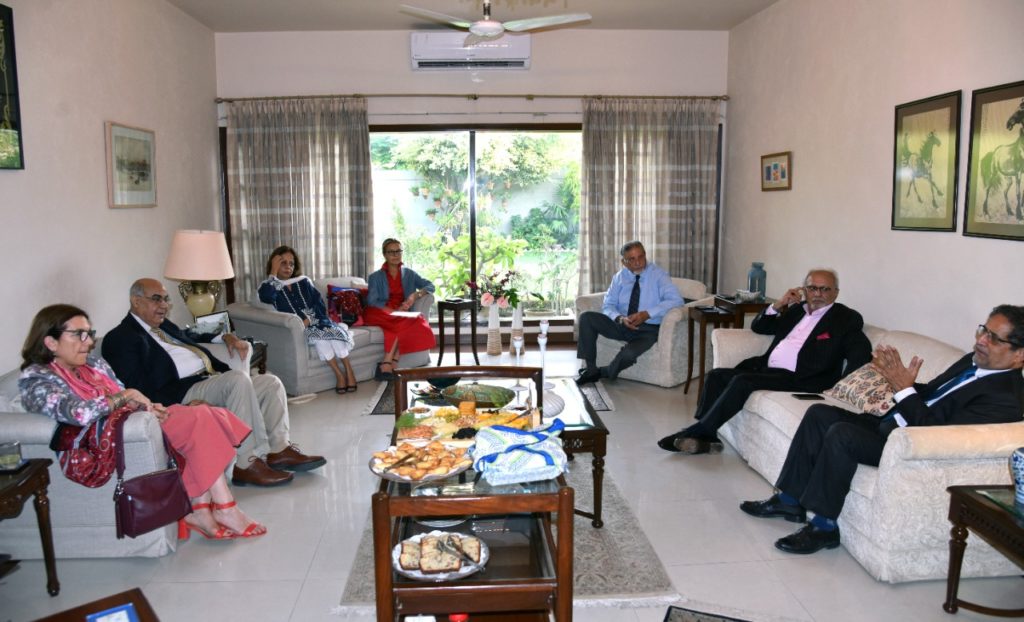
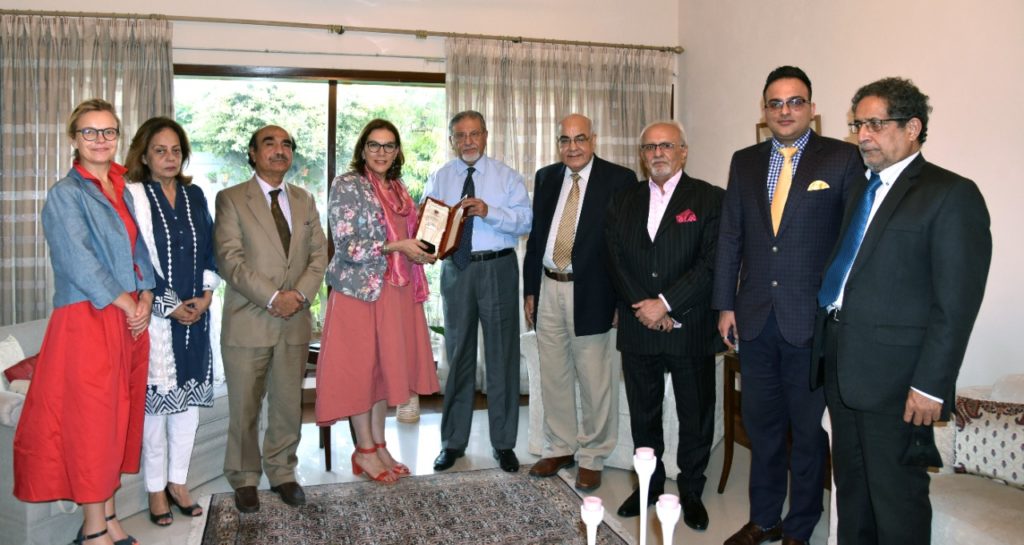
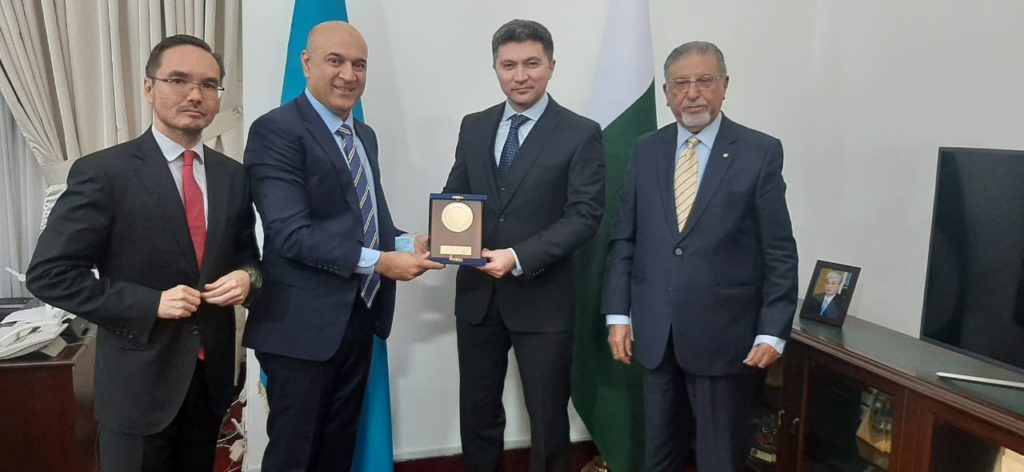

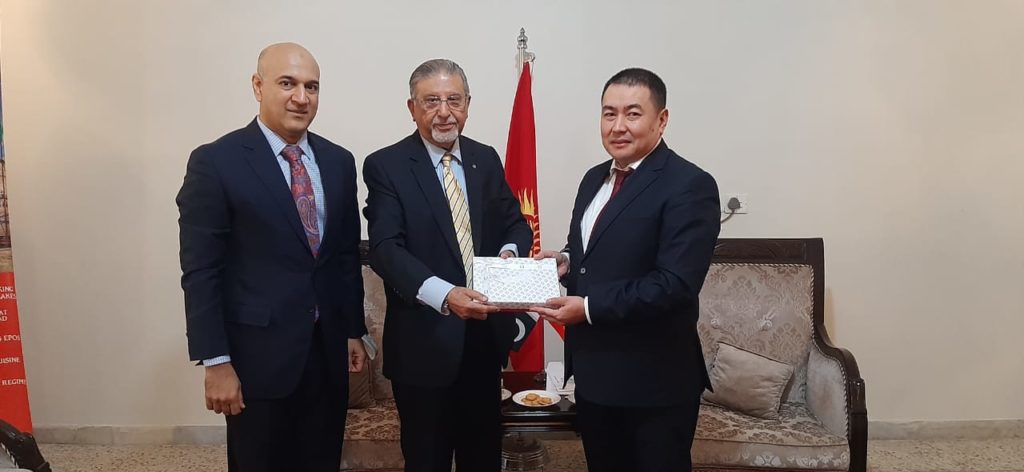
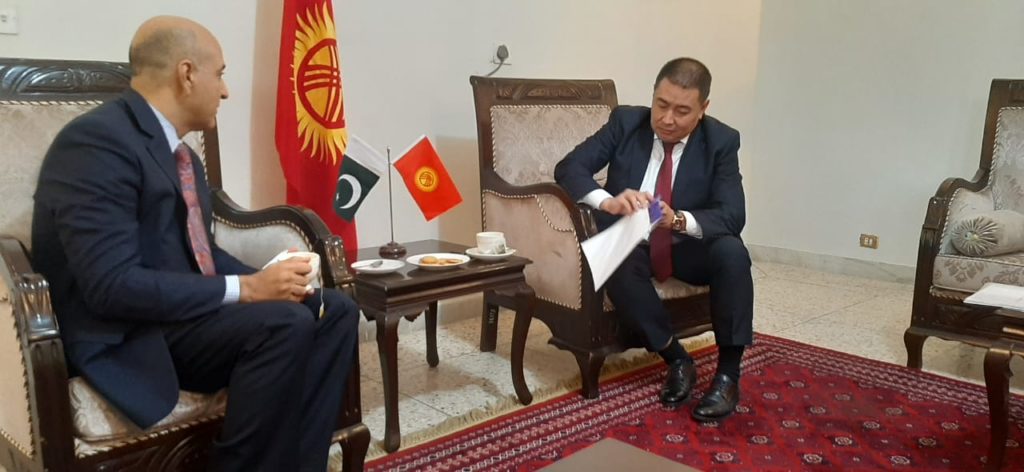
Foreign Linkages/MoUs
MoUs Signed by Mr. Ahsan Mukhtar Zubairi, Secretary General, with Foreign Countries. The aim of MoUs is to develop cooperation and partnership in the fields of diplomacy, culture, economy and trade, education, international relations, social sciences, communication and the media.
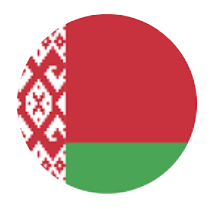
Signed MoU with the Belarusian State University, year 2018
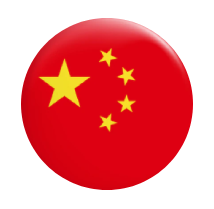
Signed MoU with Shanghai institute for International Studies SIIS, Shanghai. Year 2014

Signed MoU with the Institute of Internationals, Relations of Taras Shevchenko,National University of Kyiv, Year 2016
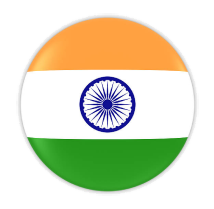
Signed MoU with Observer Research Foundation Mumbai-India, Mumbai. Year 2015

Signed MoU with The Tunisian Institute Of Strategic Studies (ITES), Year 2016.

Signed MoU with China Institute of Contemporary International Relations, CICIR, Beijing. Year 2015
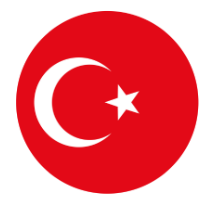
Signed MoU with The Turkish Asian Center for Strategic Studies, (TASAM) Istanbul, Year 2016.

Signed MoU with The East West Institute, Newyork. Year 2015
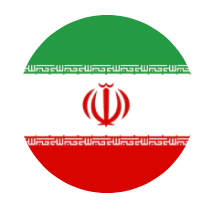
Signed MoU with Institute for Political and International Studies (IPIS), Tehran. Year 2016.
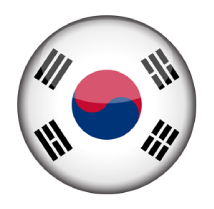
South Korea:Signed MoU with The Sejong Institute, Seongnam. Year 2014

Signed MoU with The Russian International Affairs Council,Year 2014

Signed MoU with The National Institute Of Strategic Communication ,Year 2016
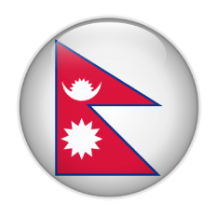
Signed MoU with the Nepal Council of World Affairs, Year 2013. And Nepal Institute of Policy Studies , Year 2012, Kathmundu
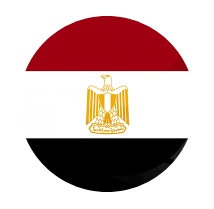
Egypt:Signed MoU with The Egyptian Council for Foreign Affairs, Cairo, Year 2012
Board OF Governors

Amb ® Shahid M. Amin
Founder & Chairman

Amb ® Alam Brohi
Founder & Co-Chief Patron

Mr. Ahsan Mukhtar Zubairi
Founder & Secretary General / CEO

Amb® G.Rasool Baluch
Senior member

Mr.Huanid Lakhani
Member

Mr. Talib Karim
Member

Mr. Naeem Ahmed
Founder & Co-Chief Patron
Life Members
S.no | Names | S.no | Names |
1 | Amabassador Shahid Amin Former Ambassador | 23 | Mr. Ahsan Mukhtar Zubairi Diplomatic Advisor TCS Logistics Pvt.Ltd |
2 | Mr. S. Nadeem Ali Kazmi Chief Excutive Officer Validus Engineering Pvt.Ltd | 24 | Mr. Syed Mazhar Ali Nasir Director Operations SWAT Ceremics Co. Pvt Ltd |
3 | Mr. Roger Dawood Bayat | 25 | Mr. Syed Javed Iqbal President & Chief Executive Officer CMC Pvt Ltd |
4 | Mr. Mohammed Rajpur Managing Director Shipping Agencies Pvt Ltd | 26 | Ambassador S.Hassan Habib Former Ambassador & Senior Fellow IOBM |
5 | A.V. Marshal (R) Nudrat Kazmi PAF Retired Private Business | 27 | Dr. Muhammad Imran Yousuf Chairman Transformation International |
6 | Mr. Najmus Saqib Chief Executive Officer Dr. Salim Ahmed & Co | 28 | Mr. Pervez Haroon Madraswala Chairman Pakistan Australia Business Form |
7 | Mr. Muhammed Yusuf Yaqoob Chief Executive Officer YY Builders & Developers Pvt Ltd | 29 | Mr. Ahsan Mehanti Managing Director / Chief Executive Officer Arif Habib Commodities |
8 | Mr. Mashkoor A.G. Khan Regional Manager Meezan Bank | 30 | Mr. Arshad Riaz Fazail Chief Executive Officer International Chemplast Pvt Ltd |
9 | Mr. Faisal Nadeem Chief Executive Officer Foreign Trade Associates | 31 | Mr. Sahibzada Sahayan Imran Khan Chief Executive Officer Cloud 99 |
10 | Mr. AB Siddiqui Chief Executive Officer STC Pvt Ltd | 32 | Mr.Sohail Amin Chief Executive Officer House of Amin Group |
11 | Mr. Soli R. Parakh Executive Director Beach Luxury Hotel | 33 | Mr. Anjum Nisar Managing Director Anjum Asif & Company Pvt. Ltd |
12 | Mr. Saadat Yar Khan Advocate Ibadat Yar Khan & Co | 34 | Mr. Arshad Ali Chairman Jaffer Jees Pvt. Ltd |
13 | Dr. Tariq Aziz Consultant Eye Surgeon Advance Eye Clinic | 35 | Mr. Abdul Majeed Co-Founder and Chairman National Foods Limited |
14 | Dr. Zubair Mirza Orthopedic Surgeon DHA Medical Centre | 36 | Mr. Rizwan Saadat Chief Executive Officer Leopards Courier Services Pvt. Ltd |
15 | Mr. Rashid Ahmed Siddiqui Group Chairman Afeef Group | 37 | Mr. Shazad Sabir Group Director (Import & Export) KU Trading Co |
16 | Mr. Sohail Yasin Suleman Honorary Consul General MAURITIUS | 38 | Mr. Asif Zubairi Chief Executive Officer Aaj TV |
17 | Mr.Raheel Zubairi Director Venus Pakistan Pvt Ltd | 39 | Mr. Farhan Hassan Chief Operating Officer DKT Pakistan Pvt. Ltd |
18 | Mr. Asif Ali Rashid FCA Managing Director / Chief Executive Officer AL- Mutaza Machinery Pvt Ltd | 40 | Mr. Raza Hussain Bandeali Executive Director & Sr. Consultant Banking and Finance Excelerate (Pvt) Ltd |
19 | Mr. Adnan Asad Chief Executive Venus Pakistan (Pvt.) Ltd | 41 | Mr. Khalid Feroz Arfeen Director Arfeen International Pvt. Ltd |
20 | Mr. Syed Masood Hashmi (Tamgha-e-Imtiaz) Chief Executive Officer Orient Communications (Pvt.) Limited | 42 | Mr. Aziz Memon Chairman Kings Group |
21 | Mr. Qazi Sajid Ali Chief Executive Officer Dadex Etrnit Ltd | 43 | Mr. Mushtaq Wali Muhammed Chief Executive Officer Y.Y Trading Co |
22 | Mr. Jhanghir Shahid Founder & Chief Executive Officer Leopard Courier Services | 44 | Dr. Farhan Essa Abdullah Abidein Director Operations Essa lab |
Foreign Linkages/MoUs
Mr. Toshikazu Isomura
Consul General
Consulate General Of Japan
H.E Mr. Li Bijian
Consul General
Consulate General of the People's Republic Of China
H.E. Dr. Salem Al-khaddeim Al-Dhanhani
Consul General
Consulate General Of the UAE
H.E. Mishal Mohammed A. A. Al-Ansari
Consul General
Consulate General of the State of Qatar
H.E. Yassir Al-Hiddi
Consul General
Consulate General of The Kingdom Of Bahrain
H.E. Mr. Hassan Noryan
Consul General
Consulate General of the Islamic Republic Of Iran
H.E. Mr. P N K Jagath Abeywarna
Consul General
Consulate General Of Sri Lanka
Mr. Nguyen Hong Tien
Commercial Counsellor Head Of Vietnam Trade Office (Karachi)
H.E. Mr. Kim Haksung
Consul General
Consulate General Of The Republic Of Korea
Mr. Fahd Zaidi
Economic Specialist /Economic Section Consulate Of United States Of America
H.E. Mr. Holger Ziegeler
Consul General
Consulate General Of The Federal Republic Of Germany
H.E. Syed Abdul Jabbar Emirate
Acting Consul General
Consulate General of Afghanistan
H.E. Mr. Ruhul Alam Siddiqui
Deputy High Commissioner Deputy High Commission of Bangladesh
H.E. Mr. Danilo Giurdanella
Consul General
Consulate General of the Italy in Karachi
H.E. Bandar Fahad Al Dayel
Consul General
Royal Consulate General Of Saudi Arabia
H.E. Mr. Abdullah Muhammad Almansour
Vice Consul General
Consulate General of The State of Kuwait
H.E. Mr. Mark Stroh
Consul General
Consulate General Of The United States Of America
Mr. Matt Ference
Consul General
Consulate General of the United States Of America
H.E. Dr. Aleksandar Grigoreivich Khozin
Consul General
Consulate General Of The Russian Federation
H.E. Dr. June Kuncoro Hadiningrat
Consul General
Consulate General of the Republic Of Indonesia
H.E. Mr. Christian testot
Consul General
Consulate General Of French Republic
H.E. Mr. Francis Campbell
Deputy High Commissioner British Deputy High Commission
H.E. Mr. Khairul Nazran ABD Rahman
Consul General
Consulate General Of Malaysia
H.E. Mr. Ali Ahmed Al Qassimi
Consul General
Consulate General of the Sultanate Of Oman
H.E. Mr. Cemal Sangu
Consul General
Consulate General Of the Republic Of Turkey
MS. Birgit Kuhlmann
Deputy Head Of Mission Consulate General Of Federal Republic Of Germany
MS. Maren Dick
Head Of Consular Affairs Consulate General Of The Federal Republic Of Germany
Mr. Ingolf Vogl
Consular Attache / Consular and Economic Affairs Consulate General of The Federal Republic Of Germany
H.E. Mike Nithavrianakis
Deputy High Commissioner and Trade Director for Pakistan British Deputy High Commission Karachi
